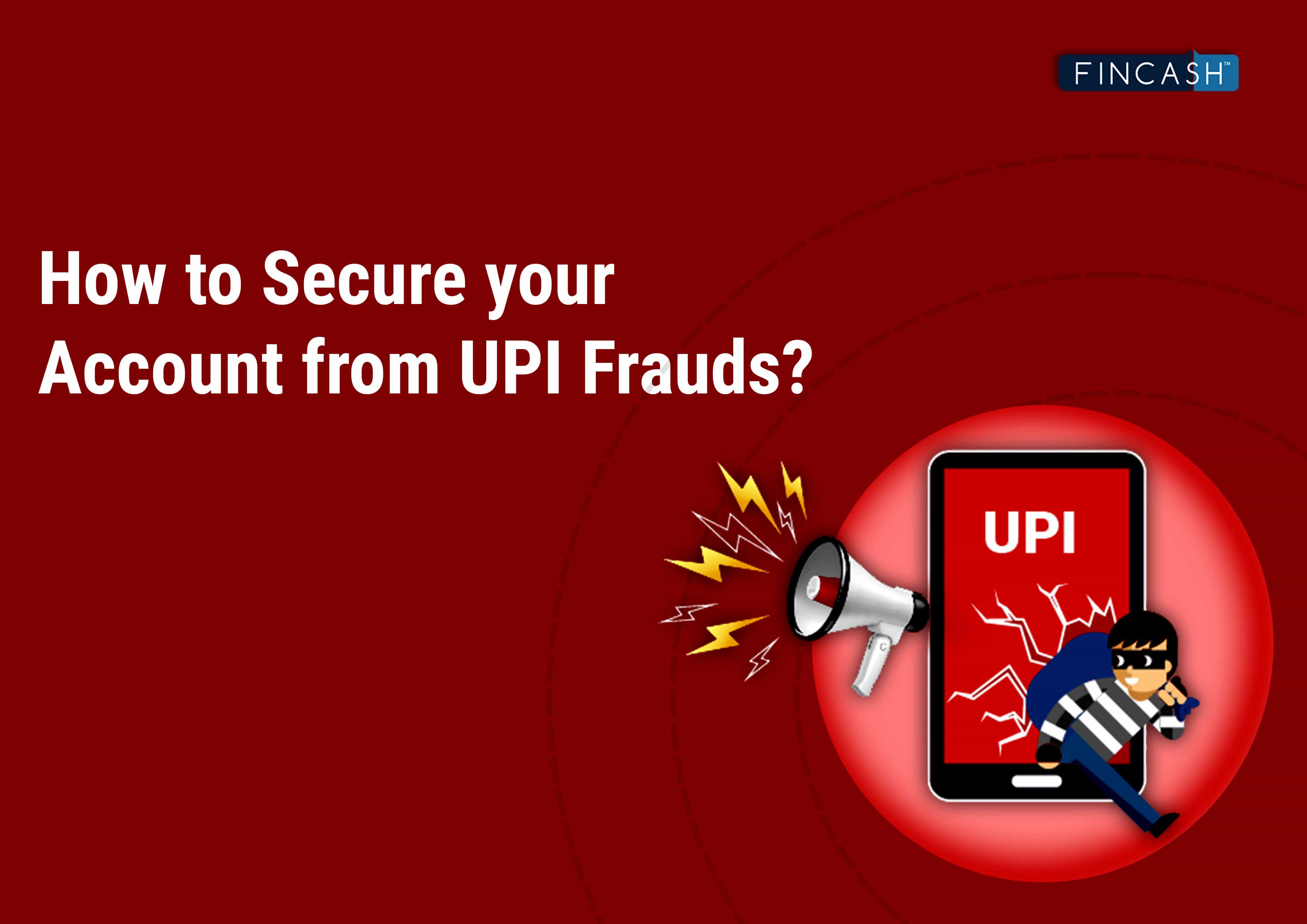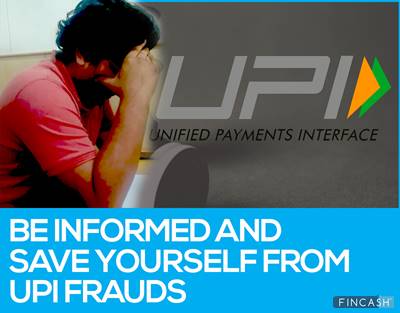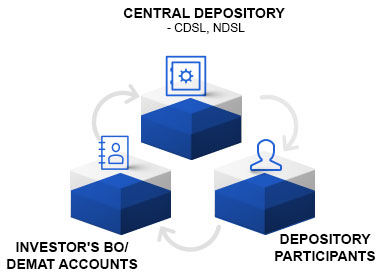
Table of Contents
- Types of UPI Frauds
- How do Fraudsters Find your Mobile Numbers?
- How do Fraudsters Implement Hacking Techniques for UPI Spam?
- How to get Money Back from UPI Frauds?
- What are the RBI’s Instructions one the UPI Frauds?
- How to Keep Away from UPI Frauds?
- What if Someone Knows 'My UPI ID'?
- Can Hackers Hack a Bank Account Using a UPI ID?
- Conclusion
UPI Frauds: How To Secure Your Account From Frauds
Digital technologies have made our lives easier. You can check your account balance, transfer money, or make payments with a few clicks. Unified Payment Interface, or UPI has gained high popularity in recent years, as it allows you to make digital transactions. At the same time, there is a negative side to the UPI payment mode.

You might have heard scary stories of losing money during UPI payments. PayTm fraud complaints and scam cases of other UPI-based apps may raise your concerns. However, if you stay cautious, you can save yourself from this fraudulency. Find a comprehensive guide on how to protect your account from UPI Fraud.
Types of UPI Frauds
Fraudsters try to misuse UPI details in various ways. You should be aware of them to avoid scammers.
Money Request Frauds
As more consumers use eCommerce portals, hackers target them on Flipkart, Quikr, and other similar platforms. These fraudsters approach consumers and pretend to be the eCommerce company’s representatives. It means they impersonate real representatives and engage these users in conversions. Then, they request customers to send money using the given QR codes. When customers send money to the fraud contact number or scan the code, they lose a large amount of money. So, in this case, scammers will try to win your trust in various ways.
Scams Related to UPI PIN or OTP
During an online financial transaction, some individuals may request you to hit a link to receive funds or make a payment. Most consumers make the mistake of trusting the person. As a result, they strictly stick to their instructions and click on the links provided by fraudsters. Rather than receiving any funds, they lose the balance in their accounts. What’s more, some scammers may persuade you to share your UPI PIN or OTP. By using the PIN, they confirm the transaction and steal your hard-earned money.
Phishing Scams
Sometimes, you receive messages that contain payment links. Although you have not triggered any payment process, you will find such a message in your inbox. You should ignore it and delete the message. The fraud payment links look almost like the original or real links. If you have mistakenly clicked the link, it will direct you to the UPI app. You will be asked to choose a payment mode for auto-debit. It will result in the instant Deduction of the amount from your account.
Talk to our investment specialist
Fake Calls
Some fraudsters Call victims and pretend to be Bank employees. They ask you to provide personal details like UPI PIN and bank account number. You must avoid responding to these calls and save yourself from fraudulence.
Malware
It is another scam that happens when you open phishing emails. Emails have infected links that redirect you to unreliable websites. You have a risk of installing faulty third-party apps. Fraudsters will copy transaction details and misuse them.
SIM Cloning
Some frauds try to create a clone of your SIM to steal your money. They send an OTP, and when you share it, your SIM and mobile may get trapped. They will also add UPI details on their own to deceive you.
Fake UPI Handles
Fraudulent persons develop spam UPI handles that display terms like BHIM and NPCI. That is why users cannot distinguish the fake and authentic UPI handles. As they find bank-related terms, they disclose their account information through a fake or unauthentic UPI app.
How do Fraudsters Find your Mobile Numbers?
Finding the mobile numbers of several users is easy for scammers. Most commonly, they access complaint desks and social media for this purpose. They use contact numbers to deliver messages or tempt you to download apps from Apple Store or Play Store.
If you have unknowingly forwarded the SMS, scammers can link or register your number or UPI account on their own phone. You may receive an SMS claiming, ‘We got a request for linking your account for UPI’. If you respond to the fraudsters, your confidential details (like PIN, Debit Card number, and OTP) will be disclosed. The scammers will then set a unique MPIN and use it for transaction authentication. They can also request you share a numerical code generated during app installation. Using the code, they can easily control your device.
How do Fraudsters Implement Hacking Techniques for UPI Spam?
Spammers go through some steps to make their hacking process successful.
- Most hackers disguise themselves as customer representatives or bank employees. They want to make users believe that they are reliable people.
- They request users to provide basic details like address, name, and birthday.
- Some fraudsters ask you to share UPI-related issues.
- After learning about those issues, they will convince you to share more data.
- Scammers will tempt you to install an app, which scans your phone data.
- You will receive a numerical code, and when you send the code to hackers, they will access your UPI account.
How to get Money Back from UPI Frauds?
If you are a victim of a UPI fraud case, you can try out some ways to restore your money. The most significant steps are-
- Use the Payment Service Provider/’s app to raise your complaint.
- While submitting the complaint, you have to choose the UPI transaction from your payment app.
- If the issue remains unresolved, you can contact the PSP ban and the bank where you own your account.
- In the last step, you can get in touch with NPCI to settle your issues.
- Check for the constant update to know the status of your complaint.
What are the RBI’s Instructions one the UPI Frauds?
Due to the increasing number of scam cases in the world of financial transactions, RBI has shown its concerns. So, after making a transaction through UPI or ATM, you will receive an SMS. The SMS states that you can deliver the message to the phone number in case of an incorrect transaction. According to the RBI guidelines for UPI frauds in banks, you can get your money back. That is why you can lodge complaints about unauthorized transactions without any delay.
While dealing with online payments, banks should register the email ID and contact details of customers. Thus, a customer receives transaction alerts and can notice unauthorized transactions easily. But, a delay in your initiative to report the case will lower the chance of restoring the fund. The refund is to be processed within 10 days.
How to Keep Away from UPI Frauds?
You can save yourself from dangerous UPI fraud with a few precautionary steps.
Keep your UPI PIN Secret
UPI PIN will prevent unauthorized access to your account. Do not share this PIN with anyone, even if he or she is a known person. It is similar to an ATM PIN that lets you make authentic transactions. So, your PIN should be strong enough to prevent hackers from detecting it. The UPI PIN must not be related to your personal details like your phone number or birthdate. If you have suspected unauthorized access at any time, you should change the UPI PIN without delay.
Never use Public Wi-Fi for Payment
Public Wi-Fi gives you free internet access. But, this Wi-Fi connection can pose a security hazard to your UPI account. Many UPI account holders have complained of unauthorized access.So, you must not use any public Wi-Fi networks while making payments through UPI-based apps. Hackers can quickly identify your sensitive details. Use your private or secure networks for this purpose. A VPN also encrypts data and prevents hackers from accessing it. It creates a safe tunnel between the internet and your device. That is why no unauthorized person can access your data.
Change your PIN Frequently
If you set a fresh PIN regularly, it adds a security layer to your UPI account. Thus, you can alter the PIN every 3 months to stay safe.
Set a Transaction Limit
Based on your usage pattern, you should set a limit on daily transactions. You can increase or decrease the limit anytime using the app. So, the hackers will not be able to transfer a large amount in a day. You will receive an alert when someone tries to cross the limit.
Avoid Screen-Sharing Apps While Using UPI
The app store presents you with different screen-sharing apps, which discreetly stay active on your mobile. They can leak your sensitive, personal details, and fraudsters can misuse them. So, you should be careful of these mobile apps and limit their use. You must use these apps prudently to prevent UPI scam cases.
Choose Authentic Apps to Use UPI
Many banks and financial institutions accept different UPI-enabled apps. As the current Market has several apps, you have a chance of downloading a fake app. Consequently, you may become a victim of a UPI fraud case. So, you should use the App Store, Play Store, or any trusted platform to download your app. Do not use website links, SMS links and any unknown sources for UPI app download. They may cause risk to your account.
Use 2FA Technology
2-Factor authentication makes your UPI-based payments more secure. If 2FA is enabled, you have to input the OTP delivered to your registered phone number to confirm a transaction. Go to the app settings and activate the authentication technology.
Use UPI PIN Just for Making Payments
Today, UPI has gained high popularity throughout the country because it simplifies transactions. Distance is not a barrier to the recipient and the payer. However, some new users are not much aware and become a victim of fraudsters. One thing to be remembered is that your PIN is essential only when you send money to others. You do not need it while receiving money from other people. So, ensure that your UPI app does not ask for the PIN when you receive money.
Lock your Phone and Prevent Unauthorised UPI
One major preventive step is to secure your mobile. Your phone has a lot of sensitive details, like your UPI PIN and ID. Although a strong password saves you from hackers, you should also enable the finger lock technology. Moreover, you must leave your mobile unattended at any public site or allow others to hold your phone.
What if Someone Knows 'My UPI ID'?
Many consumers have a question- Can I share my UPI ID with anyone? Often, UPI ID is essential to make transactions. So, you can share it with a trusted person. But, you should not share the secret PIN with any person. Besides, you should always be careful whenever you pay through UPI. Some more tips will help you stay safe from hackers.
Monitor UPI Transactions
It is essential to check the UPI transaction details regularly to know whether any unauthorized access has occurred. If you have noticed suspicious activities, you should contact a UPI app provider or bank to report the issue. Besides, you must record the transactions you made for your own purpose. It will help you avoid discrepancies in the future.
Verify Every Detail of the Payee
A virtual Payment Address is used for any UPI transactions. So, before paying a person, you should check his name, bank account details, and UPI ID. Ensure the accuracy of the mobile number or UPI ID you have entered. You can also add beneficiary details manually instead of using a third-party site.
Can Hackers Hack a Bank Account Using a UPI ID?
There is a limited possibility of such risk. Still, some spammers might apply advanced hacking techniques to access UPI and bank accounts. So, it is better to keep the UPI details safe.
Conclusion
UPI apps have become a popular choice for several consumers across India. Whether it is a bill payment, personal payment, or transactions for online shopping, users like to use UPI apps. But, carelessness and the lack of awareness have resulted in an increasing number of fraud cases. So, it is important to start a digital awareness campaign by the payment app providers and the Indian government. Besides, app users have to be cautious while paying or receiving payments through UPI.
All efforts have been made to ensure the information provided here is accurate. However, no guarantees are made regarding correctness of data. Please verify with scheme information document before making any investment.












